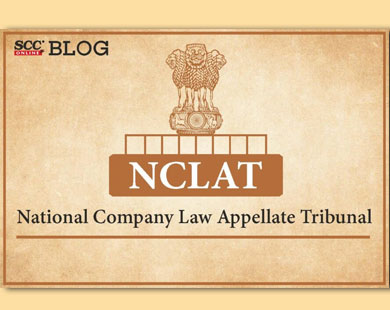National Company Law Appellate Tribunal: A bench comprising of Rakesh Kumar Jain*, J. and Naresh Salecha (Technical Member) held that the appellant failed to prove that the amount reflected in the ledger account was paid by the respondent towards the part payment of the amount due i.e. debt and default hence, was unable to prove that the appellant is entitled to get the benefit to extend the period of limitation of three years.
In the present matter, the respondent availed a sum of Rs. 98 Lakhs as Inter Corporate Deposit (ICD) from the appellant orally and undertook to pay it on demand with interest @ 12% per annum. The appellant disbursed the loan to the Respondent through RTGS, which is reflected in the ledger of the appellant wherein the account of the Respondent is maintained. The appellant filed an application under Section 7 of the Insolvency and Bankruptcy Code, 2016 (IBC) as prescribed under Rule 4(1). The Adjudicating Authority found that neither interest was paid by the respondent nor the principal amount and the application was barred by limitation as it has to be filed within the period of three years from the date of default. The Adjudicating Authority vide order dated 20-08-2021 dismissed the S. 7 IBC application on the ground of limitation and also raised doubt about the existence of the outstanding debt and default. Aggrieved by the impugned order passed by the Adjudicating Authority, the appellant filed the present appeal challenging the same.
The appellant contended that TDS paid by the respondent in terms of S. 194-A of the Income Tax Act, 1961 must be considered as part of payment for the purpose of extending the period of limitation. On the other hand, the respondent denied that the amount of Rs. 10 Lakh was paid towards part payment of the amount due.
Relying on Prayag Ploytech (P) Ltd. v. Gem Batteries (P) Ltd., 2019 SCC OnLine NCLAT 1131 and Pawan Kumar v. Utsav Securities (P) Ltd., 2021 SCC OnLine NCLAT 4150, the Tribunal observed that TDS deposited by the respondent would not be sufficient to hold that it pertains to the income of interest of the appellant on the amount which was alleged to have been advanced orally.
The Tribunal observed that the respondent has nowhere admitted that this amount of Rs. 10 Lakh was paid towards part payment of the amount due and deduction of TDS itself is not sufficient to conclude the transaction.
Rejecting the contention of appellant regarding extension of period of limitation, the Tribunal observed that the appellant has miserably failed to prove that the amount of Rs. 10 Lakh, reflected in the ledger account was paid by the respondent towards the part payment of the amount due to extending the period of limitation of three years from the said date specially in the absence of evidence of any writing in this regard.
The Tribunal observed that the Appellant cannot take the advantage of the note for the purpose of brining the application filed under S. 7 within the period of limitation.
The Tribunal observed that after taking into account the facts and circumstances of the case, no reliable contention can be found for the purpose of extension of the period of limitation in accordance with law.
Dismissing the appeal, the Tribunal upheld the impugned order passed by the Adjudicating Authority and held that S. 7 IBC application filed by the appellant was barred by limitation and therefore was rightly dismissed by the Adjudicating Authority.
[Gajendra Investment Ltd. v. Bleu Noir Infrastructure Development (P) Ltd., 2023 SCC OnLine NCLAT 38, decided on 12-01-2023]
*Judgment by Justice Rakesh Kumar Jain.
Advocates who appeared in this case :
Mr. Aayush Agarwala and Mr. Siddham Nahata, Counsel for the Appellant;
Mr. Abjijeet Sinha, Mr. Malak Bhatt and Mr. Rajat Bector, Counsel for the Respondent.
*Ritu Singh, Editorial Assistant has put this report together.







